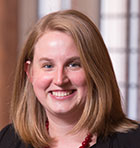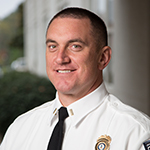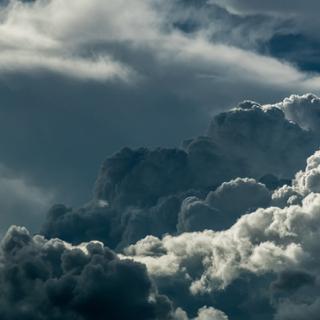When weather is a story, it’s the story. UR has experts who can provide insights on winter forecasts, severe weather preparedness, the chemistry of ice melt, and more.

Slick Roads & Salt Treatments
Chemistry professor Julie Pollock can explain the chemistry behind using salt to treat icy roads.
“If the water is mixed with salt, the freezing temperature of the solution is lower than 32 Fahrenheit,” says Pollock. “The salt impedes the ability of the water molecules to form solid ice crystals. The degree of freezing point depression depends on how salty the solution is.”
For more information, read Pollock's article Salt Doesn’t Melt Ice—Here’s How It Makes Winter Streets Safer. Originally published in The Conversation, this piece is available to republish with attribution.
More About Julie Pollock
The Physics of Weather
Physics professor Jack Singal can speak to the physics of weather and climate.
“Meteorology is an excellent example of an interdisciplinary science in which physics plays a critical role,” said Singal. “Basic physics can explain many climate and weather phenomena, from the causes of the seasons and continent-wide climate patterns to storms, droughts, and ice ages.”
More About Jack Singal
Travel Safety
Eric Beatty, of campus services, can provide winter weather tips for motorists.
“During the winter months, keep cold weather gear in your car, always have at least a half a tank of fuel, and make sure your tires are properly inflated,” Beatty says.
More About Eric Beatty
History of Weather Forecasting
Erik Craft is an expert on the history and economics of weather forecasting in the United States.
He can discuss the history of weather forecasting in the U.S. dating back to 1870 when President Ulysses S. Grant authorized the Secretary of War to establish a network of observation stations. He can also explain why the government, rather than private organizations, provided the first self-sustaining weather forecast service in the U.S., as well as the economic value of weather forecasting.
“The creation of a Federal weather organization in 1870 provided greater net social benefits than any alternative at that time,” says Craft. “Weather information services in the latter half of the nineteenth century possessed enough public-good characteristics to imply the efficiency of public provision.”
More About Erik Craft
Climate Change & Natural Disasters
David Kitchen is a volcanologist and geologist with expertise in climate change and natural disasters.
He can discuss the science behind volcanic eruptions, threats to the populations living near active volcanos, and the connection between climate change and natural disasters.
"Climate is what we expect, weather is what we receive. We expect it to be cold in January yet the weather we are receiving this winter in Virginia is unusually warm and spring-like. One single year like this does not indicate that global or regional climate is changing, but the accumulation of such “anomalies” over many years (15+) is a strong indication that climate is changing and a new “normal” established."
More About David Kitchen
Snow Day Reading
Tammy Milby, director of reading, can provide tips for parents on how to make a snow day educationally productive.
"The more your child reads, the more it will increase their vocabulary and enhance their comprehension of a text. It's most important to create a positive experience that makes them want to read. Think about their interests and allow them to select the books,” says Milby. "When it comes to reading for fun, they’ll be happier and more inspired if they get to select their own books."
More About Tammy Milby
Protecting Your Yard
Allison Moyer, University of Richmond’s associate director of landscape services and horticulture, shares how to limit the effects of snow and ice on your yard.
"When dealing with snow and ice on your landscape be mindful of de-icing agents and where you pile your snow when clearing sidewalks and driveways. Many de-icing agents like salt can damage your plants and possibly kill them," says Moyer. "Wet heavy snows can break apart shrubs and unlike hollies, some shrubs (ex: boxwoods) are very slow growers and cannot repair the damage quickly. A couple of ways to prevent this from happening is to a tarp over the shrub prior to snow and then pulling it off or broom off the shrubs during the storm every couple of hours so the full weight of the snow never builds up."
More About Allison Moyer
Weather & Climate Patterns
Stephanie Spera, Assistant Professor of Geography and the Environment, can discuss broad weather concepts, including the processes that drive weather patterns, the general circulation of the atmosphere, and climate on earth.
“Climate is weather averaged over a 30-year period,” explains Spera. “Weather phenomena occur on short time scales, yet form the basis for understanding climate, the study of changes over longer time scales.”
Spera can also discuss the effects of weather and climate on people living in different regions of the world, in addition to her research on the effects of climate change on fall foliage.
More About Stephanie Spera